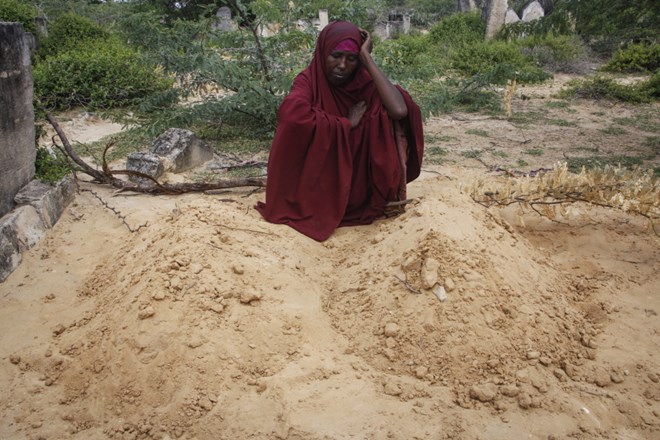UNITED NATIONS (AP) — The United Nations humanitarian chief predicted on Tuesday that at least $1 billion will be required urgently to avert famine in Somalia in the coming months and early next year, when two more dry seasons are expected to compound the country’s historic drought.
In a video briefing from Mogadishu, Martin Griffiths stated that a new report from an authoritative panel of independent experts predicts a famine in Somalia between October and December “if we don’t manage to stave it off and avoid it as we did in 2016 and 2017.”
According to the UN undersecretary-general for humanitarian affairs, more than $1 billion in new funds are required in addition to the $1.4 billion U.N. appeal. That appeal has been “very well-funded,” he said, thanks to a $476 million donation of humanitarian and development aid from the United States Agency for International Development in July.
According to a report released Monday by the USAID-created Famine Early Warning Systems Network, famine is expected to break out later this year in three areas of Somalia’s southeastern Bay region if urgent humanitarian aid is not provided.
According to a recent Integrated Food Security Phase Classification analysis, up to 7.1 million Somalis require assistance to treat and prevent acute malnutrition and reduce the number of ongoing hunger-related deaths.
For the first time in over 50 years, the Horn of Africa region has experienced four consecutive failed rainy seasons, threatening an estimated 20 million people in one of the world’s most impoverished and turbulent regions.
Meteorologists have predicted a fifth failed rainy season from October to December, as well as a sixth failed rainy season from January to March next year, according to Griffiths.
“This has never happened in Somalia before,” he said. “This is unheard of.”
“We’ve been banging the drum and rattling the trees trying to get international attention, prospects, and the horror of famine coming to the Horn of Africa — here in Somalia perhaps first, but Ethiopia and Kenya are probably not far behind,” Griffiths said.
He stated that the U.N. The World Food Program has recently provided aid to up to 5.3 million Somalis, which he described as “a lot, but it’s going to get worse if famine comes.” He added that 98% of the aid is distributed via telephone cash distributions.
However, many thousands are not receiving assistance, and hungry families in Somalia have been walking for days or weeks through parched terrain in search of help.
“We’ve been banging the drum and rattling the trees to get international attention, prospects, and the horror of famine coming to the Horn of Africa — perhaps first in Somalia, but Ethiopia and Kenya aren’t far behind,” Griffiths said.
According to him, the United Nations World Food Program has recently provided aid to up to 5.3 million Somalis, which he describes as “a lot, but it’s going to get worse if famine comes.” He went on to say that 98% of the aid is distributed through phone cash distributions.
Many thousands, however, are not receiving aid, and hungry families in Somalia have been walking for days or weeks through parched terrain in search of assistance.
“To those countries that have traditionally been very generous, including my own, and many others,” he said. “Please do not overlook Somalia.” In the past, you didn’t. You have previously made significant contributions. Please do so now.”

